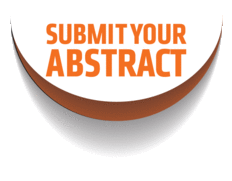Day 1 :
Keynote Forum
Gianna C. Riccitelli
Neuropsychology and Behavioral Neurology Research Unit, Lugano, Switzerland.
Keynote: TRANSCRANIAL MAGNETIC STIMULATION AND COGNITIVE REHABILITATION IN DEMENTIA: CURRENT EVIDENCE AND NEW APPROACHES
Time : 10:00-10:20

Biography:
Gianna C Riccitelli is Private Docent from Faculty of Biomedical Sciences, University of Italian Switzerland, Lugan, Switzerland. She has completed her PhD and postdoctoral studies from San Raffaele Vita-Salute University, Milan, Italy. She is the scientific leader of Neuropsychology and Behavioral Neurology Research Unit of Neurocenter of Southern Switzerland, Lugano Civic Hospital. She has published more than 55 papers in reputed journals.
Abstract:
Keynote Forum
Dr.Frédéric Checler
University of Nice-Sophia-Antipolis, France
Keynote: Aminopeptidase A and Dipeptidyl aminopeptidase 4 as putative targets in Alzheimer’s disease
Time : 10:20-11:20

Biography:
Abstract:
Several studies indicated that pGlu3-Ab is toxic, prone to aggregation and serves as a seed of Ab that aggregates and accumulates in Alzheimer’s disease-affected brain. The cyclisation of the glutamate in position 3 requires prior removal of the Ab N-terminal aspartyl residue to allow subsequent biotransformation. We have identified aminopeptidase A (APA) and dipeptidyl peptidase 4 (DDD4) as the main exopeptidases involved in an additional manner in cells. This data derives from mass-spectrometry analysis as well as genetic depletion (shRNA) and pharmacological blockade by selective inhibitors). We will describe data en obtained by in vitro biochemical approach (mass-spectroscopy analysis), measurements of synaptic density (organotypic slices), Ab load (Elisa) and Ab positive lesions (immunohistochemistry) and behavioral studies (memory defects in transgenic mice). Importantly, we demonstrate that, concomitantly to the occurrence of pGlu3-42- Ab positive plaques, APA and DPP4 activity are augmented at early Braak stages in sporadic AD brains. We will discuss the potential benefit of targeting these proteolytic activities to fight Alzheimer’s disease.

